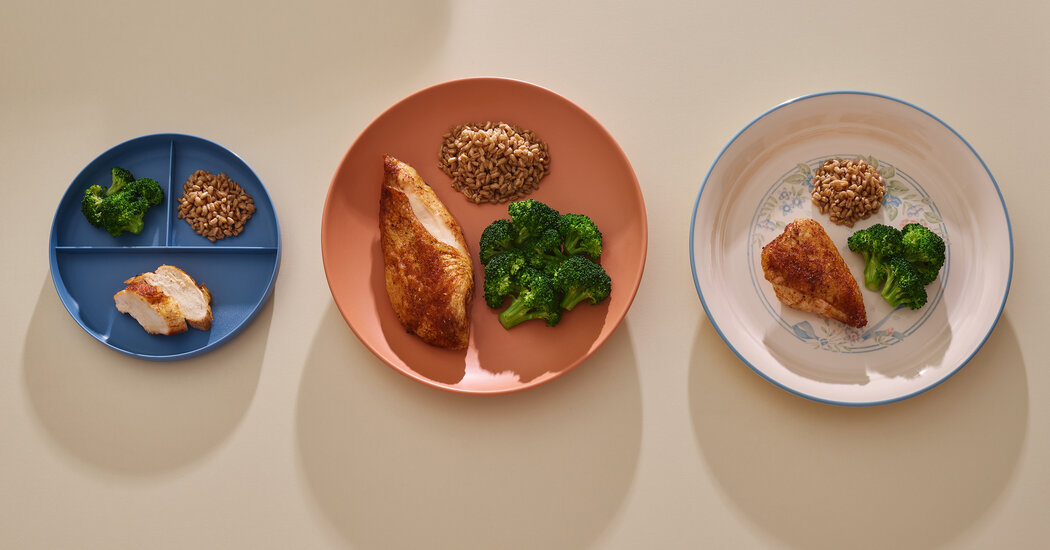Q: I’m in my 50s and I’ve heard that it’s normal to burn fewer calories as you get older. Is this true?
Herman Pontzer, a professor of evolutionary anthropology at Duke University, said burning calories can be thought of as “step one of survival.” Food gives your body the fuel it needs to stay healthy, he said.
Dr. Pontzer and other experts say age, among several other factors, can have a big impact on the amount of calories you need to maintain your weight and basic functions.
Here’s what you need to know:
How age affects calories burned
According to Dr. Pontzer, body size is the most important factor influencing caloric requirements. “The bigger you get, the more calories you need.”
But your life stage is also important, he added.
For example, babies and children are smaller than adults, so they need fewer calories. But when you calculate the calories they burn compared to their body size, they actually burn more calories than adults do because they’re growing and developing, Dr. Pontzer said.
Being more physically active also burns more calories, said Anna Maria Siega Riz, professor of nutrition and dean of the School of Public Health and Health Sciences at the University of Massachusetts Amherst.She was the lead author of 2023 report Data from the National Academies of Sciences, Engineering, and Medicine that estimated the caloric needs of people in the United States and Canada.
The report found that an inactive 40-year-old man weighing 200 pounds would need about 2,700 calories per day to maintain his weight and basic bodily functions. But if he is an athlete who trains several hours every day, he will need about 3,500 calories per day.
In the same report, Dartmouth College’s senior associate dean for basic research, Susan Roberts, found that starting around the age of 19, calorie needs “go down” a little each year, to about 11 calories a year for men and 7 calories a year for women. There is. Geisel School of Medicine.
For example, a 170-pound woman walking 60 to 80 minutes each day will need 2,450 calories per day at age 20, decreasing to 2,150 calories at age 60 and 2,000 calories at age 80. .
This age-related decline in calorie consumption is usually most noticeable after the age of 60 and can manifest as weight gain and decreased appetite, Dr. Roberts said. As we age, we tend to lose muscle and gain fat, which causes us to burn fewer calories. And the brain, the body’s most metabolically active tissue, naturally shrinks in size and requires less energy, she added.
Dr. Siega-Liz says it’s common for people to become less physically active as they age, which further reduces the amount of calories they burn each day.
You can use it to estimate your own calorie needs. online calculator. Keep in mind that such calculators can only give you a complete picture of what you should be consuming. Your actual needs will vary depending on your daily activities, genetics and other factors, Dr. Seaga-Riz said.
If you’re wondering if you’re getting the right amount, the best way to find out is to weigh yourself from time to time, says Dr. Siega-Liz. If your weight remains relatively stable, you’re eating the right amount of calories.
However, for some people, paying too much attention to the scale can create or worsen anxiety around eating and weight, so it’s best to only weigh yourself as often as you feel comfortable. said Dr. Siega Riz.
What reducing calorie consumption means for your diet
The good news is that as you get older, your appetite should naturally decline as needed, so you probably don’t need to count calories as much, Dr. Pontzer said.
But as we get older, it’s important to make sure we’re getting the right balance of nutrients, Dr. Roberts says.
For example, research suggests that starting in your 50s, your body needs more of certain nutrients, such as: calcium, vitamin B6, vitamin D and proteinEven though you’re likely eating fewer calories throughout the day.
That’s why you should allocate more of your daily calorie budget to foods that offer greater nutritional benefits, such as fruits, vegetables, whole grains, and lean protein sources, Dr. Siega-Riz said. . .
Dr. Roberts agreed. Even in her 20s and 30s, she says, “You can still eat a piece of chocolate, a beer, or a piece of cake and still have calories left over.” But when you’re in your 80s and only ingesting about 1,500 calories a day, she says, there’s less room for snacks.
Dr. Roberts believes it is wise for older adults to take multivitamin supplements to fill nutritional gaps. But she said you still need a proper diet to ensure you’re getting other important nutrients like protein, fiber and healthy plant-based compounds.
Have a health question? Please ask questions
